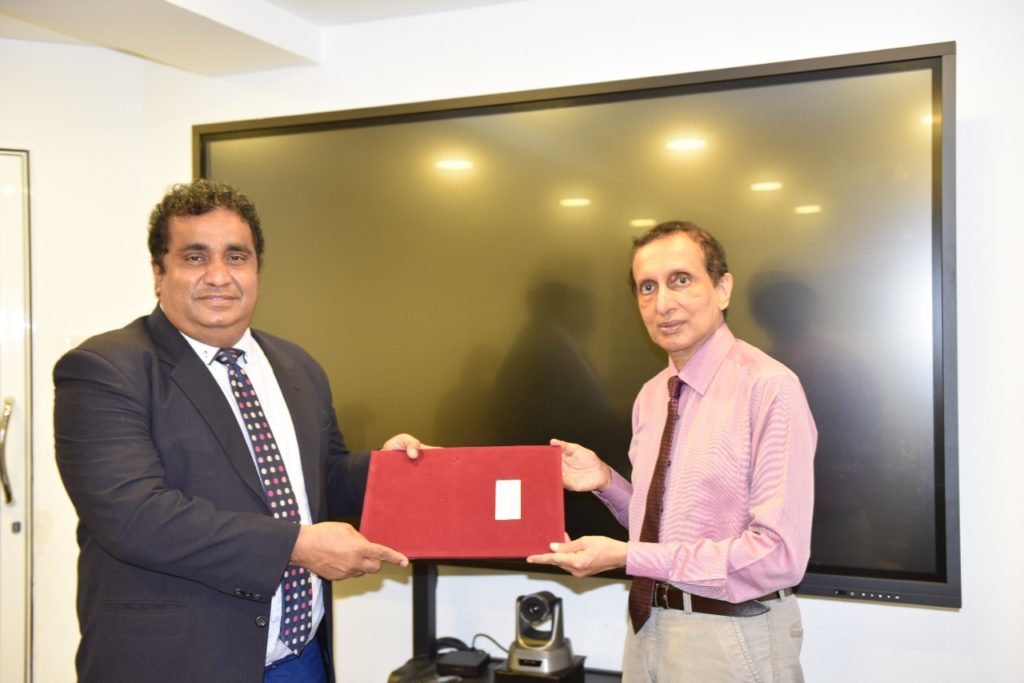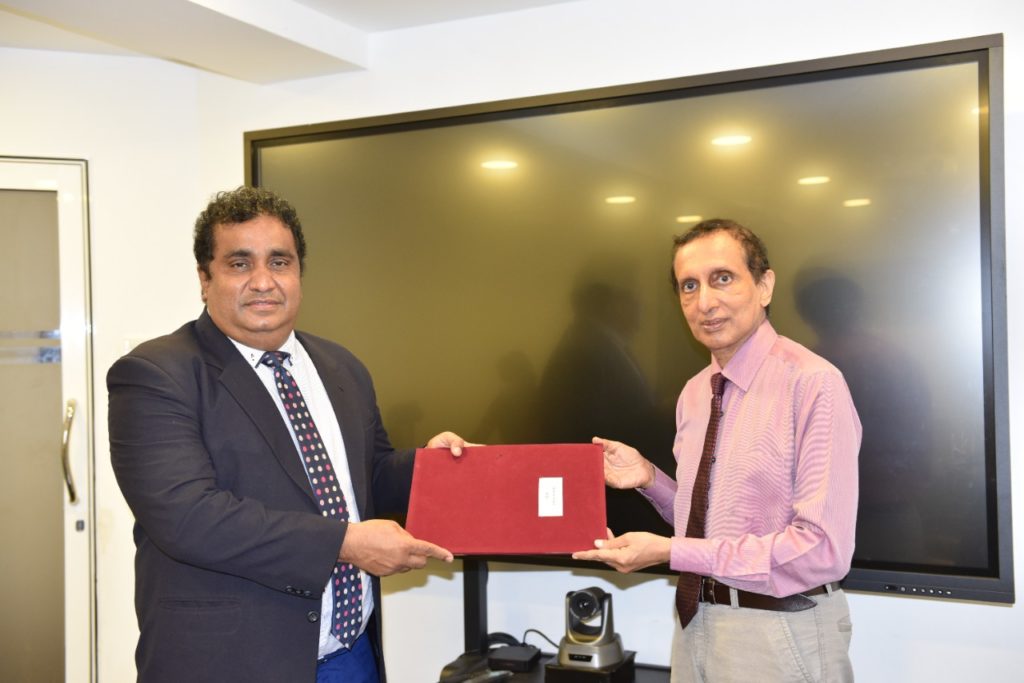Award of Special Research Grant SP 21-01 [Centre for Diagnosis and Research in Cancer – CeDARC]
- Post by: admin
- July 30, 2021
- Comments off
One-in-five men and one-in-six women worldwide will develop cancer over the course of their lifetime. Data from the ational Cancer Control Programme in Sri Lanka show that the incidence of cancer is on the rise. The incidence of cancer in Sri Lanka in the year 2014 was114.34 per 100,000 population, that is approximately 24,000 new cases of cancer. In 018,
64 new cases of cancer and 38 deaths due to cancer were reported per day in the country. The true incidence is most likely to be higher as data reported in the National Cancer Registry does not represent patients treated in the private sector.
The World Health Organization predicts that the global burden of cancer will grow by 70% over the next two decades, with an estimated 22 million new cases and 13 million deaths each year by 2032. The rise in the incidence of cancer is predicted to be more in less developed countries, such as Sri Lanka. Asia accounts for nearly half of the new cancer cases and more than half of cancer deaths. IARC suggests this trend is likely due to the higher frequency of cancer types associated with poorer prognosis, limited access to treatment and most importantly limited access to timely diagnosis. This emphasises the need for accurate and timely diagnosis in order to save lives.
Accurate diagnosis is the key to optimal treatment and research Accurate and timely diagnosis is crucial to the management of patients with cancer. Pathologists and scientists involved in cancer diagnosis not only diagnose the presence of cancer by examining biopsies, but also provide information regarding type and grade of cancer, presence of blood vessel invasion, expression of specific molecules by cancers and the genetic profile of cancers. This information is essential to determine the best course of individualized treatment for cancer in the current era of precision medicine. Accurate diagnosis is sometimes difficult due to benign conditions which mimic cancer or vice versa. Misdiagnosing a benign condition as malignant will result in unnecessary, expensive treatment with potentially serious side effects whilst misdiagnosing a cancer as a benign condition will result in spread of cancer culminating in death. Misdiagnosing the specific type of cancer will result in ineffective but costly therapy, risk of unnecessary side effects and death of the patient. Accurate diagnosis is also a mandatory component for high quality research in pathology of cancer. A major obstacle in the country with regard to conducting research on cancer is the lack of facilities available to reach an accurate diagnosis.
NRC signed a legal agreement with Prof. Chandu de Silva, Chair and Senior Professor of Pathology, Department of Pathology, Faculty of Medicine – University of Colombo, to initiate a research project titled “Establishing a Referral Centre for Cancer Diagnostics and Precision Health Research at the University of Colombo (Centre for Diagnosis and Research in Cancer – CeDARC)” on the 29 th July 2021.
This project aims to establish a Referral Centre for Cancer Diagnosis and Research at the Faculty of Medicine and Faculty of Science, University of Colombo where, Facilities are available for conduction of high-quality research to identify pathological features, risk factors, biological behavior and prognosis of cancers affecting Sri Lankans.
Cancer diagnosis will be done by an experienced panel of pathologists backed by biomedical scientists, and not by a single pathologist, ensuring more accurate diagnosis.
Availability of immunohistochemical, immunocytochemical and genetic/genomic testing that will ensure accurate diagnosis with issuing of a comprehensive report inclusive of histopathology, hematology and genetics, enabling the Centre to collect data necessary for high quality research.
The centralization of specialized diagnostic facilities and a streamlined referral system will enable collection of material for research, minimize diagnostic delays and optimize the benefit obtained from the funds invested.
Establishment of formal links with overseas centers of excellence will facilitate obtaining support for diagnosis, collaborative research and training.
The photo above features Prof. Hemantha Dodampahala [Chairman-NRC] and Prof. Chandu de Silva at the occasion of the award of the grant, at the Office of the NRC.


